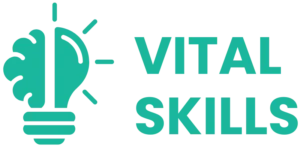Roadmap for Mern-Stack Developers
1. What Exactly is MERN Stack Development?
2. Unraveling MERN Stack Development
3. Defining MERN Stack Development
4.Traits of MERN Stack Development
5. MERN Stack Development’s Journey Through History
6. Key Technologies and Skills in MERN Stack Development
7. Practical Applications of MERN Stack Development
8. Different Sectors Leveraging MERN Stack Technology
What Exactly is MERN Stack Development?
MERN Stack development is a full-stack approach to building web applications using MongoDB, Express.js, React, and Node.js. This powerful combination of JavaScript technologies allows developers to create dynamic, high-performance web applications efficiently and seamlessly. This guide dives into MERN Stack development, covering its definition, fundamental traits, historical evolution, key technologies, industry applications, and its importance in the world of modern web development.
Unraveling MERN Stack Development
MERN Stack development leverages the benefits of a single language (JavaScript) across the entire stack, enabling fast, efficient, and cohesive development workflows. This stack has gained popularity for its flexibility, scalability, and ease of use, making it ideal for developing interactive and data-driven web applications. By embracing the MERN Stack, developers can build high-quality applications while benefiting from an extensive ecosystem and community support.
Defining MERN Stack Development
MongoDB: A NoSQL database for data storage, which allows for high flexibility and scalability.
Express.js: A lightweight framework for building backend applications and RESTful APIs on top of Node.js.
React: A front-end library for building interactive user interfaces and managing state effectively.
Node.js: A runtime environment that enables JavaScript to run on the server side.
These components together provide a cohesive development framework that covers both client-side and server-side development using JavaScript.
Traits of MERN Stack Development
JavaScript-Centric: The MERN Stack uses JavaScript across the entire development process, from database management to server logic and front-end UI.
Full-Stack Capabilities: MERN developers handle both the front-end and back-end, giving them complete control over application structure and data flow.
Scalability: MongoDB and Node.js provide the scalability needed for high-traffic applications, supporting growth and data-intensive operations.
Reusable Components: React promotes a component-based architecture, allowing developers to create reusable UI components that simplify maintenance and scalability.
Community and Open Source: All components of the MERN Stack are open-source with large communities, meaning extensive resources, libraries, and support.
MERN Stack Development’s Journey Through History
The rise of JavaScript as a dominant language for both front-end and back-end led to the development of full JavaScript stacks, with MERN Stack becoming a popular choice. React, initially developed by Facebook, introduced a powerful component-based approach to front-end development, while MongoDB and Node.js enabled scalable back-end and data management solutions. This evolution allowed developers to adopt a single-language approach, making it easier to build cohesive and fast applications, especially for single-page applications (SPAs) and RESTful services.
Key Technologies and Skills in MERN Stack Development
MongoDB: Understanding MongoDB’s NoSQL approach, CRUD operations, data modeling, and indexing is essential for efficient data handling.
Express.js: Learn to create RESTful APIs, manage middleware, handle requests, and perform server-side routing.
React: Focus on component-based architecture, state management (using hooks or libraries like Redux), and creating responsive, dynamic UIs.
Node.js: Grasp server-side programming fundamentals, asynchronous programming, and managing dependencies through npm.
RESTful APIs: Understanding how to build and consume RESTful APIs is crucial for data exchange between client and server.
Authentication and Security: Implement authentication (e.g., JWT), data validation, and secure handling of data to protect application integrity.
Version Control: Using Git for code management and collaboration is essential for effective development and teamwork.
Practical Applications of MERN Stack Development
E-commerce Platforms: MERN Stack supports dynamic, data-driven e-commerce applications with interactive product catalogs and real-time updates.
Social Media and Networking Sites: The MERN Stack is used to develop scalable social networking sites with real-time chat, notifications, and data storage.
Project Management Tools: MERN is ideal for applications that require extensive user interactions and real-time updates, like project tracking and collaboration tools.
Educational Platforms: Interactive learning platforms, quizzes, and course content delivery can be effectively built with MERN, offering scalability and high performance.
Content Management Systems (CMS): MERN Stack is useful for creating CMS solutions, enabling users to manage content and media effectively.
Different Sectors Leveraging MERN Stack Technology
Technology: Tech companies use MERN Stack for scalable web applications and internal tools, benefiting from its flexibility and rapid development.
E-commerce: Online retail companies employ MERN for interactive, real-time applications that support large product catalogs and customer data management.
Healthcare: MERN is used in healthcare applications for secure patient portals, appointment scheduling, and real-time data analytics.
Education: E-learning platforms and educational tools leverage MERN for scalable, interactive interfaces that provide personalized learning experiences.
Finance: Fintech applications utilize MERN for secure, data-intensive applications that require real-time updates and efficient data handling.













